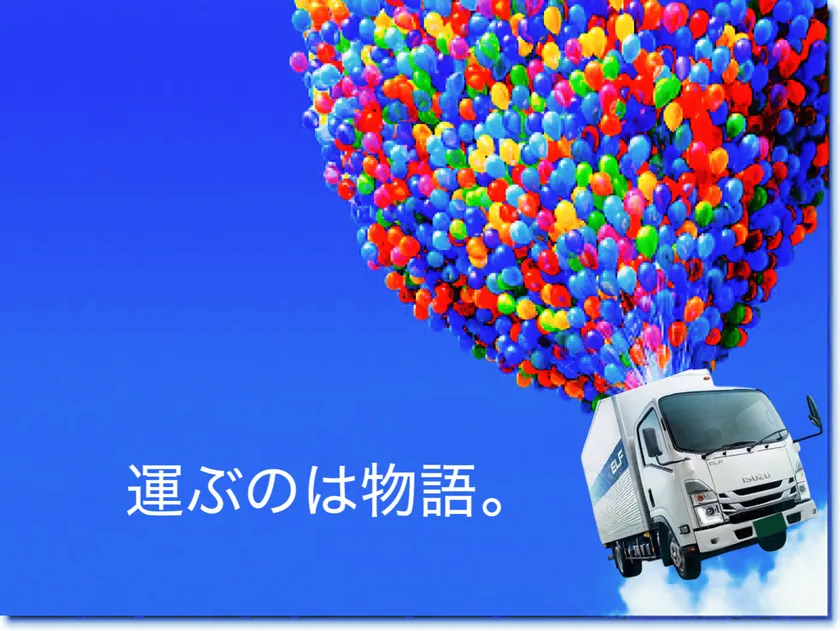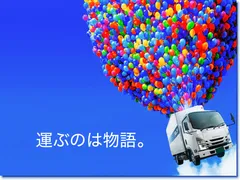The Moving Industry Collapses|Redefining the Goods Warehouse
SaaS and Collaboration to Rebuild the "Hub and Mobile Infrastructure". The Next 10 Years for the Moving Industry|Yuya Sato, President, Ryohin Soko Co.
良品倉庫
The Goods Warehouse (Shibuya-ku, Tokyo) has launched a full-scale social implementation project to redesign the "human mobility economy" from June 2025, starting from the moving site.
This concept is a challenge by Mr. Yuya Sato, President of Ryohin Soko, to go beyond the limits of "moving = transportation" and redefine transportation itself as a social infrastructure.

The Ryohin Warehouse
SaaS, AR quotation, and car-dispatch DX - 24-hour "unmanned" completion of both quotation and reception.
AI communicators are automating the moving reception process and beginning to envision the future as a "moving infrastructure.
Below is a description of the concept of "redesigning the moving infrastructure," a challenge to the "structural exhaustion" of the moving industry through collaboration with AI.
Ten years from now, the industry will quietly reach its limits.
Young workers will not be coming, and those supporting the frontline will be in their 40s and 50s. Salaries are low, and there is a shortage of licenses and personnel.
The only thing they want is speed and volume, and they have almost forgotten what the job is all about.
I think it is different.
I believe that moving is a job of carrying a person's "life".
Changing jobs, childbirth, independence, nursing care...
One couple asked us to move three times: once for dating, once for marriage, and once for the birth of their child.
On the last move, I received a letter from the wife holding her baby,
She wrote, "Thank you for carrying my life with you.
I truly believe that moving is the profession that is most deeply involved in human relationships and drama.
It is said that "there are few jobs that involve going up to people's houses," but I feel that this is my mission as an "infrastructure for human relations.
Today, there is a serious dependence on skill-sharing platforms (e.g., bulk quotation sites).
Contractors who cannot attract their own customers rely on SEO and advertising, pay a 22% commission, and are sorted by "cheapest first. Quality and brand are not evaluated, and vendors become exhausted and fall into a cycle operation.
If there is any trouble, their accounts are suspended, and even their social networking comments are monitored, and they could be cut off at any time.
On the other hand, the operators are also facing the limits of profitability.
The 22% commission fee is unsustainable, and the structure is on the verge of bankruptcy due to the high costs of servers, claims handling, and customer service.
In the past, Skillshare was a mechanism to "connect quality vendors with highly qualified users at a reasonable price.
However, the rapid increase in requests and SEO competition have accelerated the "cheapest price" mentality, and both the providers and the operators have been caught up in the thin-margin model.
Now, operators are steering away from those who use low prices as a weapon, and are moving in the direction of matching high-quality providers at reasonable prices.
Still, users who have become accustomed to low prices will not leave, and both sides are exhausted.
Skillshare, which was supposed to offer a "free way to work," is now on the verge of bankruptcy.
If this situation continues, neither the future of the industry nor its role as a "mobile infrastructure" can be sustained.
That is why we are trying to redesign a "cyclical economic zone" that does not depend on transient customer attraction.
Ryohin Soko is using "SaaS" and a "regional hub structure" to fundamentally change the inefficiencies that persist in the moving industry, and to redesign the very nature of the "human-driven economy" itself.
The industry still follows the standard structure of "onsite estimates,
However, the assumption of being at home during the day has already become outdated due to the fact that people are now working together and coming home at night.
We are looking to the future with the use of smartphones and smart glasses to solve the burdensome "in-home estimate" process.
AR technology visualizes the amount of furniture and supports virtual previews in a metaverse space.
Based on the assumption that smart glasses will be widely used, the company will create a market 10 years from now.
In addition, AI such as GPT, Gemini, and Apple Intelligence can instantly calculate the optimal vehicle and work time, taking into account work conditions, weather, and road conditions.
This system responds accurately and instantly to inquiries such as "I just want to know how much it costs for now," thereby reducing the time cost to zero for the job site, the customer, and the operator.
In addition, the introduction of 24-hour voice reception by AI communicators reduces man-hours required for phone calls and interviews. This will enable high-quality remote response without having to set up branches nationwide, and will also enable personnel who had to leave their jobs due to childcare or nursing care to return to work.
These efforts not only overturn the conventional wisdom that "in-home estimates are the norm,
These efforts not only overturn the conventional wisdom that "door-to-door estimates are the norm," but also fundamentally rethink the "opportunity loss" in the industry as a whole.
In the current moving industry, companies in the surrounding areas such as Chiba, Saitama, and Kanagawa are competing with each other for projects in central Tokyo. Behind this is a structural problem of "lack of ability to attract customers" and "unstable operation during off-season.
This structure is not limited to mere excessive competition,
This structure is not limited to mere over-competition, but also results in compound losses, such as increased fuel, labor, and truck repair costs due to long-distance travel, and loss of disposable employee time.
In addition, the spread of bulk quotation websites has accelerated the "price-first" capture of projects by companies outside the region.
As a result, local contractors who have built trust in their local communities are losing exposure, and are forced to run from distant areas, which is a situation that is a complete reversal of the original plan.
The ideal situation is for local contractors to respond to local requests.
We have returned to this starting point and envisioned an "Uber-type" moving network.
Linked with AR estimation and AI reception, we will use technology to build a system in which "companies that are there now" can respond immediately to "local needs that are required now.
This will enable the creation of a system whereby....
Supplement off-season operations by sharing available vehicles.
Decarbonize and extend the life of trucks by reducing long-distance travel.
Recovering drivers' disposable time by reducing the amount of time they are held captive.
Establish a structure that allows community-based companies to earn stable profits from "local projects.
Moving should be transformed from a mere "transportation" to a social infrastructure that returns profits to the community.
Small and medium-sized companies will work together to redesign the local economy, complementing each other's ability to attract customers and operate vehicles,
We will expand this model nationwide.
That is why we are committed to
We will redesign the infrastructure that supports the "human-driven economy" through technology and collaboration.
We are working to bring back the meaning of "human" to moving once again.
Main Services
Moving, collection of unwanted items (single items to entire houses)
Transfer, re-circulation, and donation activities (gift economy type)
SNS-linked gift projects and social contribution activities
Donation support for childcare, the elderly, and the needy
Areas of operation
Shibuya, Minato, Meguro, Setagaya, Shinjuku, Nakano, Suginami, Chiyoda, etc.
Support Hours
Phone: 10:00-18:00
Collection service: 8:00-22:00 (same-day and nighttime service available)
Business Outline
Company name: Ryohin Soko
Representative: SATO Yuya
Business description: Moving, collection of unwanted items, re-circulation activities, social contribution and gift planning
Location : Keio Hatagaya Building 4F, 1-2-2 Hatagaya, Shibuya-ku, Tokyo
Telephone number : 03-6361-8998
E-mail : hikkoshi@manhattankiss.jp
Official line : https://lin.ee/ZvS4nLr
Official Link : https://linktr.ee/manhattankiss
- Category:
- Corporate Trends

